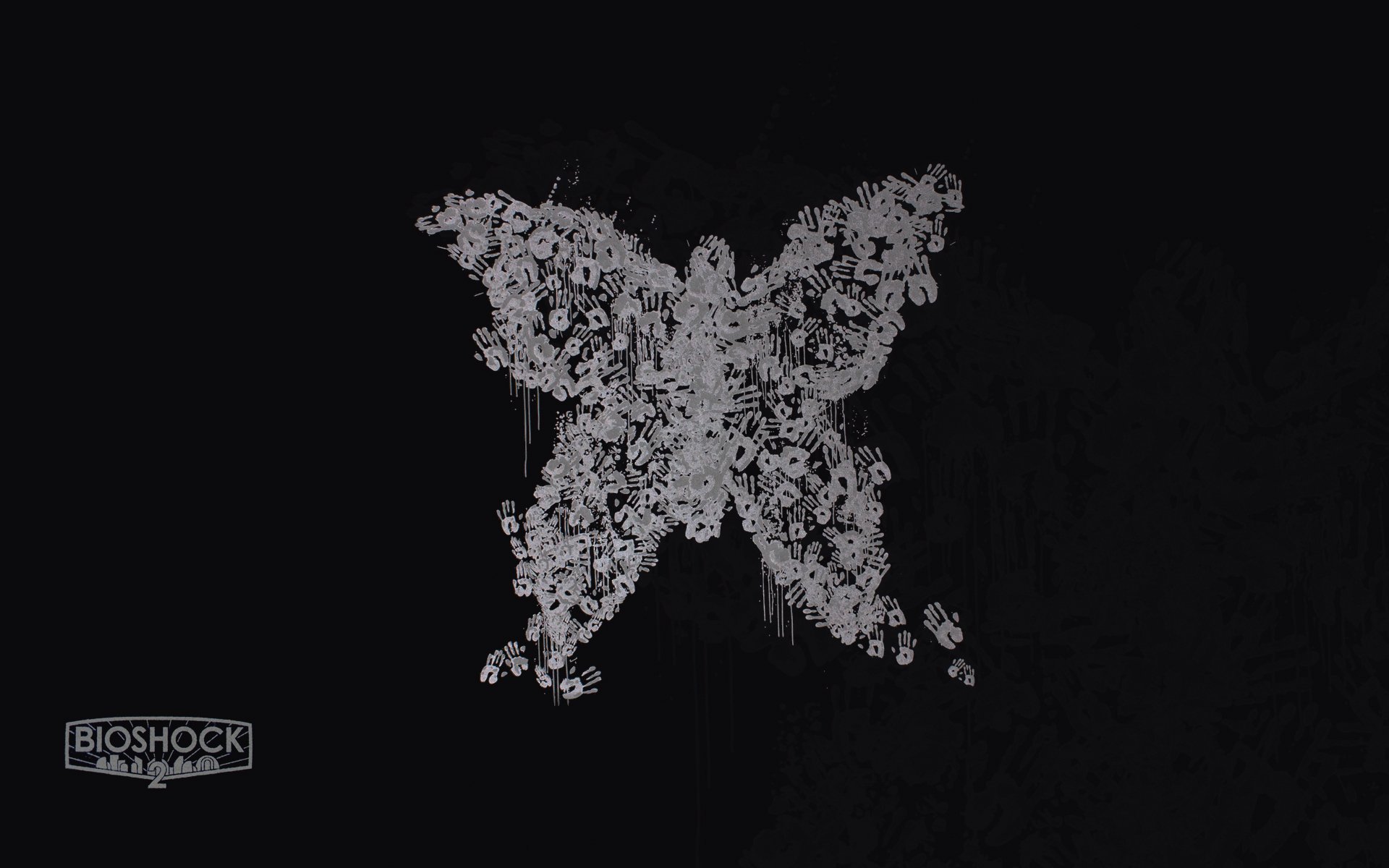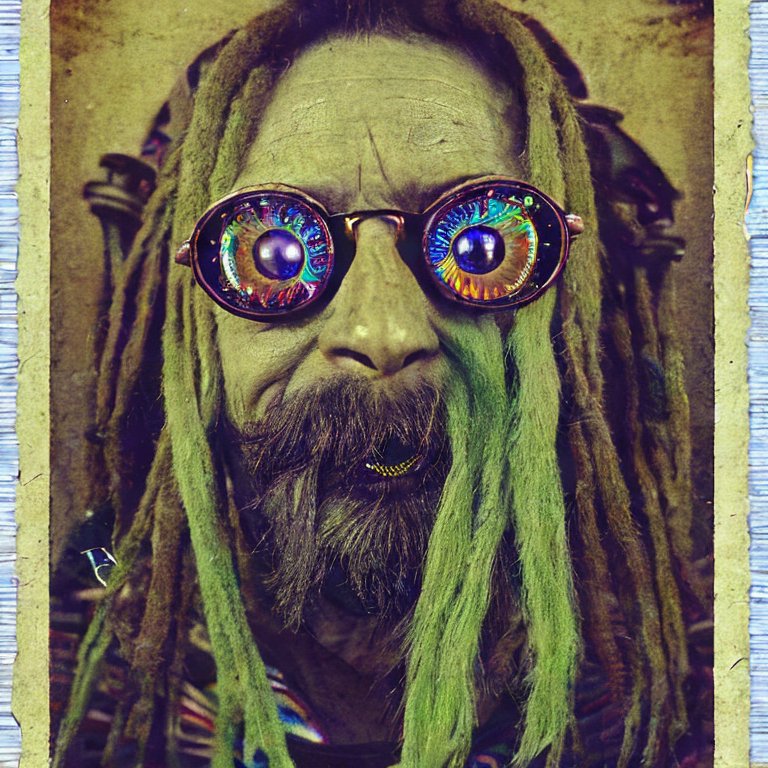Wiki was getting popular when I was in college over 10 years ago. I recall a history professor telling me not to use Wikipedia as source. I am like, okay, I will just use the source wiki uses, which are pretty solid in my opinion. Wiki came a long way.
Yeah, it’s important to remember that wikipedia, itself, isn’t a source, it’s a summary of different sources. It’s a great resource to find sources and get an overview of a topic, though.
Wikipedia does a pretty decent job of eventually being correct, at any given time it can be outrageously inaccurate. Its good to not just use wikipedia entrys and use the sources that are linked there. By using the sources that are cited you are helping to keep wiki trustworthy and helps avoid you using bad information.
It works well to manage the integrity of wiki. I think being able to intuitively navigate between entries by a variety of metrics like edits that have remained unedited the longest/shorest, newest/oldest, etc would be a very good addition to wiki.
Some kind of webarchive of wiki sources would also be amazing so that if the sources disappear or change over time there is a connection to what it was at the time it originally/previously was used as a source on wiki.
And maybe some of this already exists and im just not very good at getting my 4dollars a month worth :P
Wikipedia does a pretty decent job of eventually being correct, at any given time it can be outrageously inaccurate.
Yeah, I agree with this. I work at a high end engineering company, and some engineers have gotten into trouble using things like materials properties that they got from Wikipedia and turned out to be wrong, with unfortunate results. By policy, if we don’t know something like that we’re supposed to ask our tech library to get us the information, and that’s why.
Why not fix theses pages?
They get fixed, but that doesn’t prevent someone from using erroneous information on the next one. Just one bad number can be a big deal.
A bunch of wikipedia sources are already archived on the wayback machine, anything cited to like pre-2010, online, there’s a good chance it got taken down or changed in the last 13 years.
As long as you verify the source still exists. There are so many dead links on Wikipedia.
Archive.org bots replace dead links with working alternatives a lot nowadays. All the more reason to support that modern museum
Please dig a little bit deeper. You may end up with a stack of links to 404 sites instead of actual sources. Just because you copied a citation from WP doesn’t mean the source actually exists, let alone contains the information you seek.
In that case, try using an archived version of the webpage, for example at the Wayback Machine
deleted by creator
And it’ll get even better. That being said, it’s worth checking out the Talk pages on the articles you want to use, as they may contain information about what is (and isn’t) displayed.
I started passively editing it and I’ve been incredibly impressed.
Nah, you can’t. It’s still a great resource, but you always gotta read it critically.
The thing is that it is very easy to read Wikipedia critically, since it lists every single source they get info from at the bottom of the page.
And here I am fixing missing sources on some wiki articles just yesterday.
Someone has to do the job for everyone else can enjoy it.
Thank you very much for your service my friend.
Haha you’re welcome. I just wished that the original authors would be more careful about providing sources for claims or statements.
The hero we don’t deserve
I feel like news sources used to link to their sources too, but now it seems to be an infinite chain of links to their own articles, never directly taking you to the first hand source of information (unless they are the source).
The thing is, if the place you’re getting your information from doesn’t list it’s sources, you can’t trust it. Whenever I’m researching a thing on the internet and I find an article or a paper, I don’t just stop there, I check where they got their info, then I find that source and read it. I follow it all the way back until I find the primary source.
Like the other day I was writing a paper about a particular court case. In the opinions, as in most cases, they use precedent and cite prior cases. So I found the other cases that referred to the thing I was writing about, and it turns out they were also just using prior cases. I had to go 6 deep before I found them referencing the actual constitution for one of them. On another I found it interesting that the most recent use case was so far removed from what the original one was about and it was could probably be questionable to even use it as precedent if they had used the original instead of another case.
Anyway, the point is, always check sources. If anyone says anything on the internet, assume it’s just their opinion until you check and follow the sources…
Are you familiar with Harlow V Fitzgerald, and the full text of article 1983 including the 16 words that went missing in n 1874 when it was “copied” from the Congressional Record into the Federal Register? I’m not a lawyer, but I do want that decision reviewed, since as the law was written and passed by Congress, Harlow V Fitzgerald should have gone the other way.
And very often it’s dead links or sources that don’t say what the article pretends…
That’s why you don’t use Wikipedia as your primary source, you follow the citations. Of course, if you can’t verify that it’s accurate information, don’t report it, but it can be used as a jump off to find a legitimate source if the information you cant immediately verify is useful.
deleted by creator
Love reading any article then opening the talk tab for the civil war of edits proposed.
You should read everything critically. Which is easier on Wikipedia because it provides sources.
Wikipedia is an excellent starting point for information - but saying you can absolutely trust it hell no.
Yup, tried to correct something about a motorcycle manufacturer (no road legal model between year A and Z), linked to another Wikipedia article proving what I was saying (road legal modelS in year W to Y, just before Z), the next day the page was back to its previous version. I linked to the article about the road legal model they pretended didn’t exist and they just edited the page back to its previous version…
How dare you hurt another editor’s feelings with your facts!
It’s like chatGPT then!
at least Wikipedia is human-curated.
Wikipedia is the only piece of the internet I would save from apocalipse. Like, seriously.
Yeah, I have Wikipedia saved to a portable hard drive… Just in case
I don’t know if you’re making fun of me, but, seriously, for me Wikipedia is an enormously valuable resource, much more than, for instance, YouTube (which I use, maybe, twice per year).
There is a lot of People with a copy of Wikipedia, it only takes 8GB. Just for the case something happens. I dont think he is making fun of you.
Edit: this 8 GB was 10 years ago. From another article from 2022 it says 150Gb.
Some folks enjoy reading articles. Some folks enjoy to watch, listen and read (captions) at the same time. Some folks rather ask around and learn through conversations.
I’ve understood that it’s generally easier to learn new things when you use many different channels (audio, imagery etc). To many people but not to all.
Wasn’t making fun of you, just agreeing with you and telling you my fix
How much data does it use?
According to my app, the whole English Wikipedia with pictures weighs 102.62GB, down to 60,06GB without.
There’s also a mini version that weighs 58,29GB but I don’t know what it contains
Wikipedia 1m Top Articles weighs 43,53GB
Any idea how the 8gb from another comment might be achieved?
Edit: I guess zipping it should work pretty well
TBH I have no idea
I just took a look at what my app is saying, but I didn’t dig into it
It’s probably only the text. Images and videos weigh a lot more than text.
According to my app, the whole English Wikipedia with pictures weighs 102.62GB, down to 60,06GB without.
60GB is still more than 8GB
The other comment checked a 10 year reddit link but didnt notice the date untill it went to search for it again because of this thread. Dumbass!
Source: it was I, the guy that did the comment.
I remember in the mid-aughts my brother hacked his iPod — the wheel kind, this was pre-iPhone — to hold the entirety of the text of English Wikipedia at the time.
It’s less than 90 gig to do a full backup. I can have the sum total of human knowledge on a 1TB external SDD, and still have room for Skyrim and my modlist.
Even less so if you exclude images
Those images are important, I would keep them. Wikipedia just scrapes the surface of information, a picture can give a bigger insight.
True, if you have the space by all means
Is there an easy way of doing a full backup?
Funnily enough, wikipedia has the answer
That’s interesting
That’s only the text without any media. If you wanted to save all media on Wikimedia Commons, that would be about 420tb.
You get the images, just not audio or video files.
What if you need to remember how to procreate? I hear there are a number of informative videos about how to out there.
But there aren’t on YouTube :-P
deleted by creator
It would also be nice to have a p2p service still up in the internet apocalypse to share all the things we have left.
Could work like the underground networks in Cuba (I say underground but apparently there’s wires everywhere?)
I bought an app by Wikimedia CH that allows to download the whole thing. It’s called Kiwix.
you “bought” kiwix? AFAIK it’s free
There is a paid version on the Mac AppStore to support the project
- With the exception of any article that’s even slightly political.
Even for political content it’s damn good. Every time someone on Lemmy points to an explicit article of bias, it falls into one of 3 categories:
- Slightly unfair bias, but still largely true
- Article is correct, Lemmy cannot provide a reliable source proving otherwise
- Article is incorrect, reliable source found, article amended
The third case happened once in an article about a UN Resolution on North Korea, and it was because the original article source was slightly misinterpreted. But yea, basically what I’m trying to say is if a “political article” is “wrong” but you can’t prove it, it’s not the political article that’s wrong but you.
Edit: ITT - People upset with my analysis, but not willing to provide sources to the articles they disagree with
Wikipedia has a claimed positive-bias, in which negative things are often left out of the article. This is more true the lower profile the page is.
And Wikipedia has an overall left-bias, because of the demographic of contributors.
And Wikipedia has an overall left-bias, because of the demographic of contributors.
FROM YOUR LINK
Until 2021, we rated Wikipedia as Center, but changed them to Not Rated because the online encyclopedia does not fit neatly into AllSides’ media bias rating methodologies, which were developed specifically for news sites.
Allsides, that rates media outlets, doesn’t give a media bias rating. However, that page I linked still shows the bias even if it doesn’t get them a media bias rating.
deleted by creator
And sometimes it literally is USA propaganda. It’s quite rare, but those articles should get fixed. Changing something like “The guerrilla fighters killed babies” to “The US State Department claimed the guerrilla fighters killed babies, but critics call the claim “wholly unfounded” [source]”.
But yea, as I said, actually a lot more rare than you’d think.
tankies be like
“Wikipedia is unreliable, here’s our wiki where we source reddit comments”
Yo the tankie wiki is fucking hilarious. The USSR page has this gold mine:
“On 8 August 1945, exactly three months after the defeat of Nazi Germany, Soviet troops entered Manchuria and Korea, and Japan surrendered within a week.”
careful! That wiki is managed by the Lemmy Developers, they might BLOCK you
Wikipedia completely slanders people it doesnt like. For example Daniele Ganser who helped to reveal Operation Gladio.
deleted by creator
deleted by creator
Honestly the aren’t that biased
Nah.
I edited a page for a new OS update that was coming out. The page was FULL of misinformation, and I cleaned it up, linked official documentation as sources, etc.
My edits were reverted by some butt hurt guy who originally wrote the page full of misinformation, 0 sources, and broken English.
I reverted back to mine.
He reverted back to his.
He spammed my profile page calling me names, and then reported me to Wiki admins. I was told not to revert changes or I would be perma-banned. I explained how the original page was broken English, misinformation, and 0 sources were cited. They straight up told me they did NOT care.
Stopped editing wiki pages, and stopped trusting them. They didn’t care about factual information. They just wanted to enforce their reverting rule.
I’d love their perspective on this and the actual messages sent as this isn’t very useful standalone.
Their profile was banned last time I looked about a year ago. My profile I deleted because it was permanently tainted by that asshole spamming my talk page.
I remember posting about it on Reddit back when it happened a few years ago, and everyone in the comments told me how they’ve had similar experiences. Really just made me weary about trusting Wikipedia. I mean sure, if they get the date of a movie wrong that’s fine, but as for more serious topics, I just can’t really trust it.
Even sources can be garbage. I’ve seen plenty of blog spam cited as sources, which means nothing.
Yep, about a decade ago an expert on a subject was talking about it. He corrected a page because the info presented with tons of sources all ended up taking their info from a single unreliable source. He had to edit things multiple times, making sure to follow guidelines, basically creating a new section that condensed his work on the subject to explain the controversy and so on… The page was edited back to its previous version every time because he didn’t have enough local reputation and “older sources are more reliable”…
Could you link us the article?
deleted by creator
And what’s your source for that claim you keep making?
what’s the article in question?
deleted by creator
It’s not an uncommon tale about Wikipedia, that’s their biggest known issue with getting new blood into the community, which they’ve acknowledged themselves.
What’s your damage?
TBH that doesn’t surprise me… I had a minor spat over the existence of a local supermarket, of all the stupid things… Wiki said it had been refused planning permission and never built. I had shopped in there many times, and could link to many articles about the fully built existing supermarket. I gave up after the second revert because it’s just not worth it.
That’s a shame
It’s also a lie.
This is the third insightful comment from you on this thread against him. Are you by any chance, the alt of the user who wrote the original article on Wiki of the OS?
Hello butthurt Wikipedia admin
there is a bureaucracy for dealing with the situation you described. the other editor gamed it, but if you were right, a little persistence would have left your edits in place.
Yes, but people shouldn’t have to jump through hoops to help Wikipedia.
you’re right. when transitioning away from reddit, i took the time to understand how to navigate the wikipedia editor bureaucracy. I understood most of it in a week. now i just monitor a few articles in which i have an interest, and add to that list periodically.
i wish it were easier. MY SUGGESTION is to just go ahead and use the talk page instead of the main article as your first place to make an edit. if it’s a good edit, it’s likely someone else will write the edit themselves. if they don’t and you dont see objetions, that will help your edit stand up if there is an edit war.
That’s what I did recently with my first contribution (not that I had any other option since the article wasn’t accepting contributions from new users): One paragraph mentioned something and listed it as missing source, then the next paragraph mentioned it again and included a source. I went to the talk page and commented that the source was already there and it quickly got linked.
I’m a lot less active than I used to be, and I no longer have the time or energy to fight. Nowadays I stick to dry technical topics, personal hobbies and the wiki in my mothertongue.
I didn’t know what to do. I was being threatened with a ban, even after explaining myself and my edits.
At the end of the day the Wikipedia page didn’t matter to me that much. Who cares if people get misinformation about an OS update. I quite literally didn’t get paid enough to deal with that.
It just really changed my perspective on Wikipedia. Unless you look at the history and check out profiles of people who get in edit battles, you really don’t know what’s going on behind the scenes.
At the end of the day the Wikipedia page I was trying to edit ended up being corrected by someone else (who completely disregarded all of my effort), but it took a month, and someone else to do it, before the page wasn’t full of misinformation anymore. RIP to anyone who visited that page within that month and never returned, because they were fed 80% misinformation.
the etiquette and process is non-obvious so i think your reaction was totally understandable.
Pro wrestling wiki pages used to have entrance themes, finishers and signature moves in the wrestler’s page.
One power-mod removed it and it’s gone.
People suck wiki’s cock on the Internet, but it’s a pretty dogshit site and I wish it dies so that a new and better alternative pops up.
I think assuming a better alternative will appear is a bad idea. Most likely some company sees an opening to control the information and monetize it. They can’t really now because Wikipedia is the default, but I don’t doubt someone would try if they see the hold Wikipedia has falter.
It doesn’t need to die for a new alternative to pop up.
I just doubt any alternative will be as good as the one we have now.
There will always be someone there to take its place. Maybe a more transparent and decentralised alternative like how fan-wikis used to be before Fandom bough them.
deleted by creator
Tbh those pieces of trivia don’t feel like encyclopedic information in the first place. A reader need not know specific intro songs to have an encyclopedic overview of wrestling, just that intro songs are often used.
A list containing the specific intro songs is vastly more suited for a fandom repository than an encyclopedia.
I have to disagree. Wrestling is all about the show, so a dedicated table of wrestlers’ entrance themes, finishers and signature moves seems very on-brand for Wikipedia. It’s also unclear if this was just a line item listed on every wrestlers’ individual page or if this was a table, but either seems pretty on brand. Maybe there’s a dedicated page for entrance theme music and a table of who used what song makes sense there?
To reference something I actually know about almost every Wikipedia page for a railroad will include a detailed route map. One could argue that that’s not encyclopedia-like and should be reserved for a travel site or train chasing guide yet here we are
That sucks, but I also kind of empathize with wiki mods, cause it’s really hard to know when to cut stuff down. I remember seeing a while back a bunch of people that migrated out from wikipedia to some completely unknown new wiki nobody will ever hear about, because they were working on chronicling all the roads in america with screenshots and notes of location and historical details about it all. Wikipedia didn’t really get it, as it’s more like a kind of academic and news aggregate, and there was nothing really there to aggregate, it was just an infodump of a bunch of different stuff. If wikipedia was a 1-1 map of the world, then it would be the size of the world. Or bigger, if you include historical stuff. No way you’re fitting all that on a 102 gig drive, or whatever the size of wikipedia is. Plus there’s hosting costs to consider, so it’s not like they could do that even if they really wanted.
It’s mostly true for articles that do not have large public coverage. Otherwise the number of those who stubbornly fight for the truth will prevail
How dare you trash Wikipedia on Lemmy? Infidel like you should be sent to gulag.
My workplace got a “coronavirus” chat on the corporate chat server. And the known “conspiracy theorist” guy on my team posted a link to some article on some total misinformation mill masquerading as a news source.
I looked up the name of the source on Wikipedia, which said it was a total misinformation mill.
So I linked to the Wikipedia article in the chat.
I work at a fairly big and diverse company, so of course there was more than one conspiracy guy there. It was really surreal watching people who literally think all governments are run by a secret cabal of Democrat extraterrestrial pedophile child-adrenaline junkies attack the trustworthiness of Wikipedia.
Edit: I’d forgotten the name of the “misinformation mill” that originally started that shit storm in the work chat, but I went back and looked it up. It was Project Veritas. https://en.wikipedia.org/wiki/Project_Veritas
RIP in Piss P. Veritas I hope hell is hot for you on the way down
They still exist. They just do not have James O’Keefe who was shit canned.
Wait, James OKeefe was always a can of shit
Please let me live in the world where they were internationally disgraced and every pundit that used them as a resource equally disgraced
99% of people bashing Wikipedia do so because they read that they’re delusional about something.
Source: have read >100 Wikipedia bashings that answered follow-up questions.
Silly question but why is a work chat used for conspiracy theories? It seems like a bad use of company resources
They’ve got the permissions set up on the work chat server to allow anyone to create chats at will. Those chats can be public (listed in the search and anyone can join with a click) or private (can’t be joined without an invite from the owner of the channel).
And they don’t discourage non-work-related chats for… team building reasons, probably? There’s one for “Video Games” for instance.
I know the guy who made the “coronavirus” chat and he 100% did not intend it for conspiracy theories. The whole IT department was in the process of going remote when that chat was created and that chat was intended for everything from helpful tips for working remotely to news/rumors about when/if we might be going back to the office to news about death rate statistics and such.
And this conspiracy guy had (still has, actually) a deep-seated need to proselatize for the conspiracy of the week 24/7/365. So he just decided that was as good a pulpit as any.
Shortly after the shitstorm started, three levels of management above both me and Conspiracy McGee entered the chat. They didn’t end up doing anything. (It fizzled before they had to take action.) But I’m sure they all had their fingers hovering about 2mm above the “shut that shit down” button.
Now, all that said, there is a chat on the work chat server dedicated to the conspiracy podcast “No Agenda.” And I’m pretty certain it was created by Conspiracy McGee. And I’m pretty sure my/his direct boss is in the No Agenda chat.
So, I guess the short answer to your question is that they don’t want to shut down non-work-related chats so as to pay some lip service to team building and not appear too draconian (while at the same tacitly encouraging a culture in which it’s not really acceptable to spend too much time in those chats rather than furiously typing code). And the company’s management is sufficiently right-wing as to not get that allowing conspiracy theorists to conspiracy theorist is eventually going to backfire on them, so they don’t see it as dangerous. So they see it not much unlike having a chat about the latest Mario Kart game or the Marvel Cinematic Universe or whatever.
Hopefully that answers somewhat.
It sounds like the simple answer for you would be not to participate in chats that will upset you
Wikipedia was useful for me as a grad student because I could look up a topic and there would be a whole lot of citations I could follow. I never used them as a source, but rather as a curated forum of information.
Wikipedia is like our dear friend. It gives us general information, good advice, and direction in life, but never gets too deeply in it. The choice is ours to make.
Only problem is that half of them are broken :(
You’d be impressed by how good I was at finding PDFs of original articles on random sites. Turns out that when you go to grad school in the third world and don’t have access to the journals in the same way as you are accustomed, you learn how to do it for yourself.
sci-hub
This was back in 2010-ish. Don’t know if it works the same way now, there are probably better ways to go about it. Not sure if sci-hub existed at that time. Will remember that going forward.
I’ve been doing exactly the same thing with LLMs recently.
"Tell me about "
“What are the big problems their industry is trying to solve?”
“Who are their biggest competitors?”
“What’s the worst/best thing about them?”Questions like that often give me a great framework to look up specific questions, find relevant articles and get a handle on the sources that are likely to be useful.
I’d definitely be careful about made up stuff, but this sounds like an interesting idea.
Very careful. I never use anything from them directly. I just use them to give me a starting point on what to look for.
For example, if the AI tells me that some company is know for their low latency database, I’ll look around for primary sources on the latency of the database compared to other vendors. I’ll also look for evidence to the contrary.
I was always told not to quote Wikipedia. They told everyone this because people would constantly quote Wikipedia and then someone would edit it so that the paragraph was now different. It was a right pain even if the information was correct.
What you do is you check Wikipedia’s sources and then quote those sources. Hopefully they’re quoting academic papers and not blog posts because otherwise you’re just kicking the cam down the road.
I hated in high school that teachers always said the internet isn’t a good source.
In college I finally realized that websites were poor sources because they change and move, whereas a published book, edition, and page number won’t change. But that doesn’t mean you can’t use the Internet to find a good source - you just need to cite the source itself and not the site.
Everything I’ve published is published digitally, but the journals still have editions and page numbers. When someone cites my work, they need to cite that information - not the website that may change names or shut down.
So now I’m mostly mad that teachers don’t explain why websites shouldn’t be cited. It makes good sense in that context.
When “they used to tell us we couldnt trust Wikipedia” it wasn’t in contrast to random websites; it was in contrast to primary sources.
That’s still true today. Wikipedia is generally less reliable than encyclopedias are https://en.wikipedia.org/wiki/Reliability_of_Wikipedia.
The people who tell you not to trust Wikipedia aren’t saying that you shouldn’t use it at all. They’re telling you not to stop there. That’s exactly what they told us about encylopedias too.
If you’re researching a new topic, Wikipedia is a great place for an initial overview. If you actually care about facts, you should double check claims independently. That means following their sources until you get to primary sources. If you’ve ever done this exercise it becomes obvious why you shouldn’t trust Wikipedia. Some sources are dead links, some are not publicly accessible and many aren’t primary sources. In egregious cases the “sources” are just opinion pieces.
Wiki was as reliable as encyclopedias in 2005. It is far superior today.
“Oh, people can come up with statistics to prove anything, Kent. 14% of people know that.”
-Homer Simpson
There is a lot of bias on pages about religion, I find.
My kind of bias, or the wrong kind?
This is hilarious, thank you
For example there were pages that would state that “Scholars agree that the gospel of ____ was not written by _____ but was written by an anonymous author” when the original sources never discredited the original claim of authorship, but were essentially “I can’t be sure who wrote it”, never actually saying/discrediting that it wasn’t written by said evangelist.
I think the anonymous perspective belongs there, but when the original source says “I cannot be sure who wrote it” then that’s not saying it wasn’t written by them.
Just look in this thread. I’m not talking about writing college papers. I’m talking about the boomers saying you can’t trust anything you read on the internet.
Anecdotal, but I’ve never had a teacher tell me why Wikipedia wasn’t a good source. Similarly, I’ve never had a teacher educate students on how to properly use resources like Wikipedia as a starting point for sources. All my peers and I heard was “Wikipedia is bad, never use it, it’s not reliable, don’t trust anything from it.”
I wish I had been taught why and how earlier, but I had to learn why and how myself.
The thing is: in the not to distant future encyclopedias will be a thing of the past.
The Tab “Talk” gives you a lot more to learn on some pages, take a look !
Yet if you ever try to edit a page, the “Talk” tab is filled with the most pretentious protectionist people. You can add helpful context or missing information with sources to the wiki, and it will get deleted simply because you haven’t spent months cozying up to the greaseball who sits on that specific wiki entry as if they possess it.
there is a bureaucratic machine for dealing with this kind of problem
But what do we do if every level of that machine is completely controlled by those people?
it’s not. there are boards on Wikipedia specifically for calling in neutral editors.
Yep, generally different editors focus on different subjects.
Tbf the gamergate saga basically caused the infrastructure to have a rolling panic attack over how that such a large movement to insert misinformation against any effort to correct it.
All articles referencing this topic on Wikipedia are extremely biased.
Just call then out on it in talk by mentioning why you would add it.
Alternatively make an upgraded English-only wiki alternative with way larger article max sizes so we can finally evolve it past 2005. And start using YouTube links and not (just) a native video player. And start quoting/including entire chapters from relevant books.
The problem with using YT videos is that they are transitory. Also, you’re then subjecting your reader to somebody else’s advertisements for their gain.
Also YT follows the same rules as Wikipedia for being a source.
You don’t cite it, you find what it’s citing and cite that if you decide what those sources have to say are relevant to your intended argument.
In general wikipedia is a great source of knowledge that would be very hard to find elsewhere. That said, it can and often is edited by anyone. I’ll never forget a friend sent me a link to file system comparison chart which included ReiserFS and someone added the last column ‘Murders your wife’ to ‘Features’ https://en.wikipedia.org/w/index.php?title=Comparison_of_file_systems&oldid=209063556#Features

And interestingly it’s trustable because it’s got no central authority core that can be corrupted
Except there are defacto central authorities governing certain pages.
Not only that there’s a turf war going on for control of them.
Certain ahem religious organizations monitor a variety of pages and snipe any changes they disagree with. Businesses are doing it too.
And certain politicians
Which religious orgs?
Probably all of them… Just a guess though.
I haven’t participated in wikipedia enough to see how these turf wars play out. I’ve heard that, unsurprisingly, there are groups that control pages, some opposed and some unopposed. It’s a really interesting thing to me.
I’m afraid of politics, generally speaking. But I bet it would be interesting to be a part of all that.
I think the word you’re looking for is “trustworthy” but yes.
I consider it a separate concept.
yeah, apart from the admins that have absolute authority over everything and can do whatever the hell they want and make up arbitrary rules that disqualify your perfectly valid sources.
that doesn’t happen
There definitely are editors who game the rules. And they are enough of a problem that sometimes rules need to be modified specifically to handle them.
you seem to be conflating editors with admins.
Admins are a subgroup of editors. As more senior members, they should behave more responsibly. But some don’t.
That’s is definitely not true…
Elon Musk Offers to Also Ruin Wikipedia https://www.rollingstone.com/culture/culture-features/elon-musk-wikipedia-twitter-x-encyclopedia-1234861220/
deleted by creator
Definitely not wiremin! it’s scam
Look at their website, they keep babbling about their “protocol”, but all you can find about this supposed protocol is marketing speak, no real technical specification or paper, no code, nothing. How does this thing actually run? Nobody knows.
It’s proprietary, which alone is enough reason to run away from it. And seeing that the dev’s email is gmail, we can be sure they don’t give a fuck about privacy or decentralization.
It seems that this decentralized style starts to be a new trend?
First this Fediverse/Lemmy I heard about. Then The Matrix (messaging platform). And now these Mastodon & WreMin.
Well, if that prevents or slows down the corrupted law of enshittification, then I’m approving it!
A fediverse decentralized Wikipedia substitute would be interesting for sure.
Wikipedia’s massive head start is pretty strong though. With Lemmy, I don’t care if a post has 100 comments while the same article on Reddit has 10,000. The comments here are better anyway. But if a Fedipedia has 1/100 the subjects covered that Wikipedia does, that makes it less useful.
Yup…no matter how good a tool is, if there are no users to it, it might be as good as it never existed (unless if someone takes ideas from said tool and implements them to a user service, growing their quality, which is still better than nothing). Sad but true.
is wiremin using activitypub?
I don’t know myself. I just heard about it. Haven’t studied it at all.
deleted by creator
deleted by creator
Hardly a loophole - Wikipedia’s greatest strength is as an aggregator of reliable information, and using Wikipedia’s sources is how people SHOULD use it. They just taught you how to use it.
Damn, this is genious. My future kids are going to learn so much cool stuff branded as “loopholes”.
“Turns out if you willingly focus on the fear, it diminishes. Neat little loophole”
That is a nice one! Brb, going to internalize it for
my own sakethe theoretical children.
Schools aren’t with it. I was told in the 90s that cursive was the future. We had already progressed beyond word processors and they are having us learn fucking loopy letters.
Uni wasn’t much better. Found myself over thirty years behind industry when I got out.
I think it might depend on the field of study and location, but schools are often a little on the conservative side. Even so “loopholes” as best practices is arguably even better.
It’s basic research and writing. You should absolutely teach your kids common sense practices.
My SO is a little scared I will push too much information on them (I have a degree in geek), so I thought more of the pedagogic value of calling something a loophole/hack/cheat etc…
I agree with that. Word it how they respond to it.
Educators HATE this weird loophole!
Yes. That’s how you use an encyclopedia.
Big brain move: Tell your students about this neat loophole, gets them started on actual research.
(Ideally - I’d be lying if I said I’ve never used a quote from Wikipedia citing the stated source without actually reading it [usually at 5 am for papers due in two hours], but more often than not Wikipedia was the signpost for the rabbit hole)































